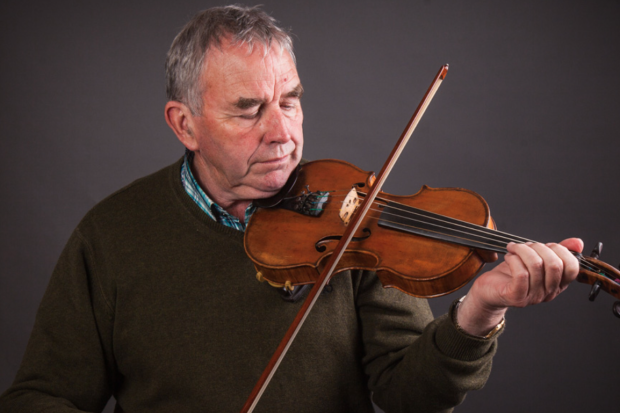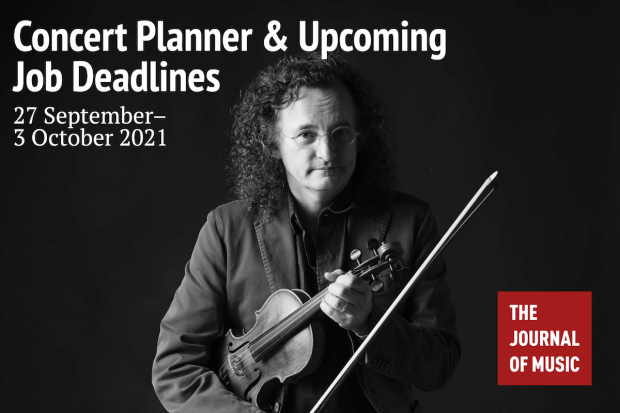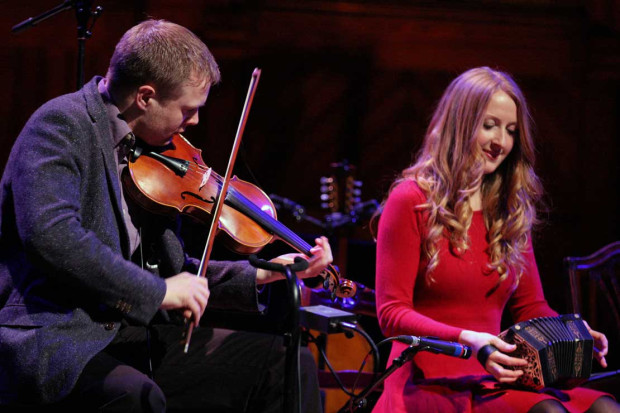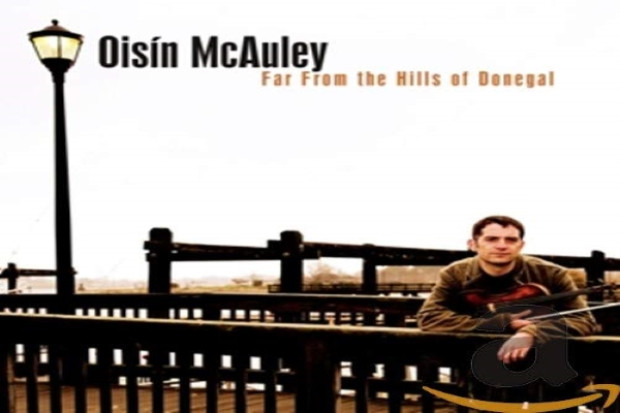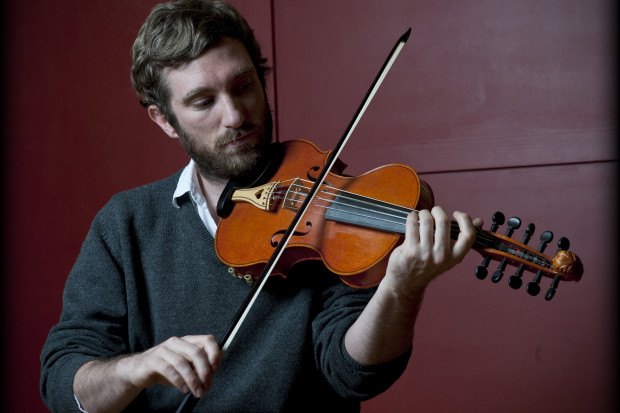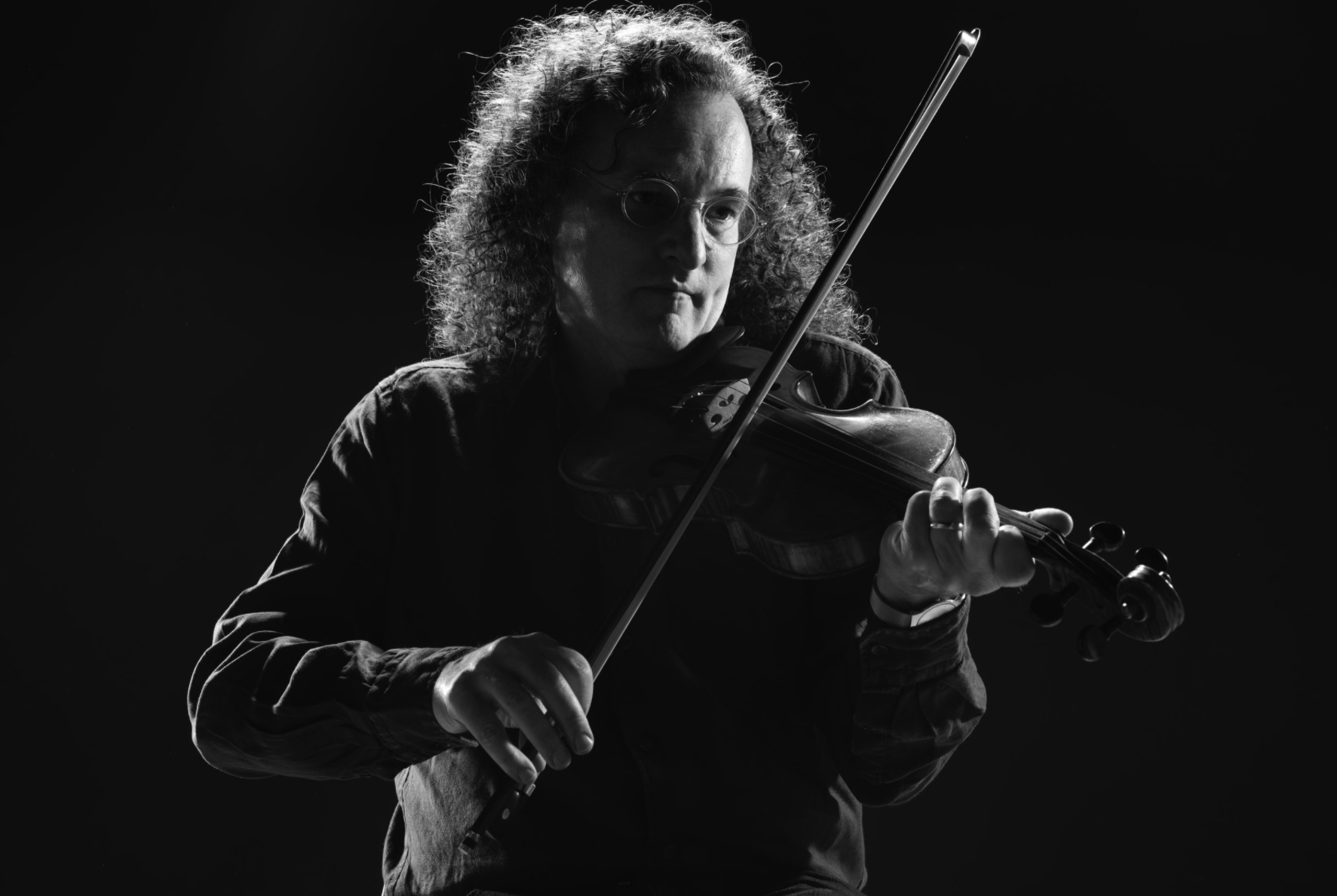
Martin Hayes
Persist to the Other Side
The last three years have seen a generational shift in Irish traditional music. We have lost some of the outstanding musicians that have shaped previous decades, from Liam O’Flynn and Tommy Peoples to Tony MacMahon. And we have lost many others. Much of their musical knowledge is gone with them, and those who knew them are thinking now about what they learnt from them and what they need to hold on to. They have of course left us their music, and other significant documents, including Peoples’ 2015 tutor/memoir Ó Am go hAm – From Time to Time, O’Flynn’s papers now lodged with the Irish Traditional Music Archive, and MacMahon’s radio and television programmes, interviews and essays, but the fact is that we still have few in-depth biographies and autobiographies of leading traditional musicians from the past sixty years, a period that has been a momentous era for this music. That is a significant blindspot in our book publishing and in our cultural dialogue.
The publication of a substantial autobiography by the fiddle player Martin Hayes, Shared Notes: A Musical Journey, is, therefore, most welcome. For almost thirty years, Hayes has both publicly challenged ideas around traditional music and championed this art form, drawing in new audiences. His music is complex, and worth trying to understand at a deeper level. And yet, I picked up the book with trepidation. Would it excavate deeply enough to give us new insights into his music? Would the publisher know to go beyond Hayes’ popular groups The Gloaming and the Martin Hayes Quartet and push for more about his solo fiddle playing? If they didn’t, it would be a missed opportunity. The quote on the cover could cause concern. From the Irish Times, it reads, ‘We’ll surely talk of having seen this man the way others talk of Miles Davis or Jimi Hendrix or John Coltrane.’ Well, I surely hope we don’t, because none of those musicians have ever played in Ireland, and our media is hardly rich with insightful discussion about their work. It’s an example of the vacuous statements that tend to arise in our discourse around music, and which somehow find prominence. But we read on.
Shared Notes takes a linear approach, beginning with Hayes’ ancestors and then working steadily through the years of his childhood, growing up and working on the family farm in East Clare, attending school, learning music, the musicians he met, his relationship with his father (the fiddle player P.J. Hayes) and family, his teen years, attending college in Limerick, travelling to the States seeking opportunity. At over three hundred pages, it moves calmly and steadily. His prose has a light touch but he is not afraid to pause on details. His memory is remarkable at times, providing descriptions of fields, rivers, roads and experiences from his earliest years (he was born in 1962). About his mountainous walk to school as a child, he writes:
A practice that occurred quite a lot back then in rural Ireland was the nicknaming of households… The climb after McMahon’s house continued past a little avenue to the right, where John ‘The Geg’ Moroney’s house was. We’d eventually reach our first flat stretch of road towards the end of the next valley… We then went downhill, past Malley’s Stream at the bottom, before we began another climb up towards Moroney’s Flat… named after another local family… but nobody seems to know who the Malleys were. There is, however, something very beautiful about a family name long gone from the area, but still being remembered in the name of a picturesque mountain stream.
Hayes’ childhood was not just a rural one, but before a range of modernising trends came to his area in the west of Ireland. He recalls when they first bought potatoes from a local shop rather than growing them, and when their farm-working horses were replaced by machines. There are plenty of musical references in the opening section, but there is a gentleness to the narrative, and I wondered if he was going to reveal the underlying essence of his music.
And yet, if you have attended a concert by Hayes, you will know that there is a particular type of build-up in his musical approach. He will begin a long set with a plaintive slow air or hornpipe, then a slow jig, turning to a moderate reel, gradually increasing the pace. Then the musical gearstick shifts, and an unexpected intensity arises. Shared Notes begins similarly, with quietude. Then, like a performance, the drama begins.
The first moment is at a Fleadh Cheoil in Buncrana. At fourteen, he realises that he had learned something significant from the generally older musicians that he was hanging around with through playing with the Tulla Céilí Band, of which his father was a member, but he had had little success in competitions before that. He begins to wonder if what he felt about music, and the way he and they played, actually had much value beyond his own locality and the declining audience for the céilí bands. Then, when he plays at the all-Ireland Fleadh Cheoil in a way that is different to everyone else, something unexpected happens.
When it was my turn to go on, I headed to the stage, my father’s old fiddle in hand. … I just wanted to play in the way I’d been doing all that time I’d been sitting on the side of the bathtub [Hayes’ preferred place for practising] … to me this was not so much a competition as another opportunity to play out in the world. I went for it the same way I still try to do to this day, which is to let go, sink into the music, allow myself to feel it and, to the best of my ability, play from my heart.
Various other competitors had played virtuosic show pieces, but the judge, fiddle player Séamus Connolly, called out Hayes’ name as the winner – making it the ‘most dramatic musical moment’ of his musical life up to then.
My mother, who was normally very sparing with her compliments, told me how proud she was of me… I walked out of that hall, with fiddle and cup, feeling as though I was walking on clouds.
The next moment was when he was fifteen and playing in one of the local folk revival spots, The Highway Inn in Crusheen. When he finishes playing, he sees Tony MacMahon, one of his musical heroes, making a ‘beeline’ for him.
I remember him smiling broadly as he approached me… His exact words to me were: ‘Don’t ever change what you’re doing.’
In his teens, therefore, Hayes’ trajectory as a significant musician in the tradition seemed to be well on track. His father had exposed him to the greats, from Tommie Potts to Joe Cooley, and he had the aptitude to apply himself to the music.
But then things started to fall apart. In his late teens, he began drinking, a one-off at a festival at first, but then consistently and excessively. Growing up, he had always felt apart from his peers, a straight-laced, older-than-his-years, buttoned-up misfit, playing unfashionable, old-man music in the progressive 1970s. His frustration at being the odd one out began to come out in mental distress. He became depressed – a counsellor shocked him by worrying that he was suicidal – and he lost his sense of direction, starting business ideas with a sense of desperation, building up debts, and losing his previously rooted identity. He still played music with the céilí band but could see no future in it. A foolish accident put him in hospital and left him close to losing his foot. He writes:
I seemed to be failing at every turn. I was still having nightmares about my time at Limerick University [he was dropping out]. In one nightmare, I was trying to find my locker at the university, a mundane inconvenience that in real life would merit little reaction other than annoyance, but in the dream I’m panicked to a point where the anxiety is palpable even through the filter of my dreamlike state. Searching for my locker was a reminder of some unfinished business, of the fact that I’d failed to complete the task. I could bury this in my waking hours but not in my dreams.
Friends asked him to travel with them to the States to do bar gigs, and what was meant to be a few months turned into several years. Here, though, Hayes’ musical identity becomes completely subsumed under the demands of the Chicago bar circuit. Punters were interested in fast, wild tunes and rousing songs, and so he played them. There was no space for the tradition of soft East Clare music that he grew up with. He buried it all inside, along with his frustration and pain, and continued to drink.
If you didn’t look too closely at it, life was good, and if you didn’t think about things too much, it was even better. The reality, however, is that there are always going to be penetrating quiet moments alone when it’s impossible to avoid the larger questions, the moments when you catch a glimpse of your own life, when it becomes difficult to avoid the truth of your situation.
And then, one day, he cracks. At a gig on St Patrick’s Day in 1988, in his mid-twenties, he smashes his precious fiddle and bow that his father gave to him over his musical partner and walks out of the bar with it in pieces in his case.
The story of redemption and spiritual growth that follows is an inspiring and insightful one. Hayes gradually pieces his life together and insists for himself that he play music that means something to him. His remarkable recording career, beginning with his debut album, Martin Hayes, from 1993, begins in this period. After the studio recording, the mastered version is sent to him to listen to.
We put it in the stereo and listened. This was the moment that I knew I’d finally managed to shoulder the gift I’d been handed. I had found my way back from the wilderness. I knew that my father, Martin Rochford, Junior Crehan, and all the people I’d dedicated the recording to, would be able to understand and connect to this music.
There is something magical about that recording for sure – it is enigmatic and fearless, but also fragile – and now knowing the story and struggle up to it, it feels even more moving. Hayes went on to release several more significant albums, and the remainder of the book comments on his many collaborations, from Randal Bays, Steve Cooney, Dennis Cahill, Dave Flynn, Paul Simon and the Masters of Tradition festival to the groups Triúr, The Gloaming, the Martin Hayes Quartet and his latest, the Common Ground Ensemble.
The value of this memoir is partly because of the nuanced way Hayes describes the musical tradition he grew up in, and how he came to develop his musical voice (there is, thankfully, ample insight into his fiddle playing), but more than that, it is a story about the power of resisting conformism. It is a story for every musician who has doubted their own voice. Shared Notes tells you that, if you persist, there is something waiting for you on the other side.
There is another element too. The book seems to carry something of the philosophy that underpins a lot of Irish traditional music and makes it such a powerful force in our society, that of sharing knowledge and trying to be open and reach out to others. It feels apt that MacMahon – who epitomised this thinking – appears again at the end of Shared Notes, when he was spending part of his year in India, and Hayes tours there and meets up with him.
Towards the end, Hayes writes:
Since those years of discovery in Chicago, I have tried to live my life as an act of faith – a belief that, if I’m on the correct path, I can face all uncertainty without much worry or fear. … In my musical life, I have placed my faith in the intangibles, giving them first priority. Music is much more than scales, notes and sound-vibrations. … the truly soulful and transformative expression of music is of a different nature – it comes in a moment of surrender.
In this work, Hayes has not only conveyed his own deeply felt musical beliefs, but he has also provided a rare insight into this changing musical tradition in the late twentieth and twenty-first century. Most of all, it is a book about the creative process, its mysteries and challenges, and how courageously embracing them can reveal to you as much about your own life as about the music itself.
Shared Notes: A Musical Journey is published by Transworld Ireland. To purchase a copy, visit www.penguin.co.uk.
Published on 17 November 2021
Toner Quinn is Editor of the Journal of Music.












